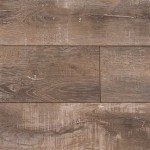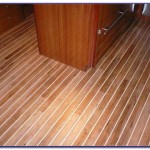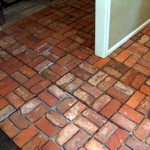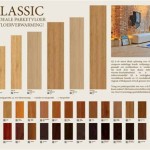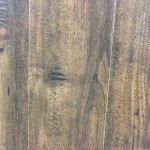Does Lumber Liquidators Bamboo Flooring Contain Formaldehyde?
When selecting flooring for your home, it's essential to consider the materials and their potential health implications. Bamboo flooring has gained popularity as an eco-friendly alternative to traditional hardwood flooring. However, concerns have been raised about the presence of formaldehyde in bamboo flooring, a known carcinogen. This article delves into the issue of formaldehyde in Lumber Liquidators bamboo flooring, providing insights to help you make informed decisions about your flooring choices.
Understanding Formaldehyde
Formaldehyde is a colorless, pungent-smelling gas commonly used in the production of various products, including building materials such as plywood, particleboard, and flooring. It has been linked to a range of health issues, including eye, nose, and throat irritation, respiratory problems, and an increased risk of certain cancers.
Bamboo Flooring and Formaldehyde
Bamboo flooring is typically made from bamboo stalks that are processed into planks. During this process, adhesives and resins containing formaldehyde may be used to bond the bamboo fibers together. The amount of formaldehyde released from bamboo flooring can vary depending on the manufacturing process and the quality of the materials used.
Lumber Liquidators Bamboo Flooring
Lumber Liquidators is a major retailer of bamboo flooring and other flooring products. Over the years, concerns have been raised about the formaldehyde emissions from some of their bamboo flooring lines. In 2015, the company faced a class-action lawsuit alleging that it had misrepresented the formaldehyde content of its bamboo flooring.
In response to these concerns, Lumber Liquidators has implemented measures to reduce formaldehyde emissions in its bamboo flooring. They now use CARB Phase 2-compliant adhesives, which meet stricter formaldehyde emission standards. According to the company, their current bamboo flooring complies with all applicable safety regulations and meets the California Air Resources Board (CARB) standards for low-emitting materials.
Choosing Low-Formaldehyde Bamboo Flooring
If you're concerned about formaldehyde emissions, there are steps you can take to minimize your exposure:
- Choose bamboo flooring that is certified by third-party organizations such as GREENGUARD or FloorScore. These certifications indicate that the flooring meets strict formaldehyde emission standards.
- Opt for bamboo flooring with low formaldehyde emissions, as measured in parts per million (ppm). Look for flooring with a formaldehyde emission level below 0.1 ppm.
- Ventilate your home adequately during and after the installation process. Open windows and use fans to circulate air.
Conclusion
While concerns about formaldehyde in bamboo flooring have been raised in the past, Lumber Liquidators has taken steps to address these concerns. By using CARB Phase 2-compliant adhesives, they aim to reduce formaldehyde emissions and ensure compliance with safety regulations. By following the recommendations for choosing low-formaldehyde bamboo flooring and ventilating your home properly, you can minimize your exposure to formaldehyde and create a healthier indoor environment.

Lumber Liquidators Class Action Lawsuit Filed Over Formaldehyde Flooring In Aboutlawsuits Com

Lumber Liquidators Dangerous Wood Flooring The Facts

The Lumber Liquidators Lawsuit Explained And Dangers Of Formaldehyde Flooring Artisan Wood Floors Llc

Lumber Liquidators Chinese Flooring Problems May Be Impacting Homes Nationwide Aboutlawsuits Com

Lumber Liquidators Stock Plunges After Cdc Hikes Cancer Risk From Some Laminate Flooring Cbc News

60 Minutes Is Right To Raise Questions About Lumber Liquidators Toxic Floors

Lumber Liquidators Formaldehyde Flooring Hagens Berman

Feds Harmful Formaldehyde Levels In Lumber Liquidators Flooring Cbs News

Abc7 Gets Tests Showing Concern Level Red For Formaldehyde In Some Lumber Liquidators Flooring

Engineered Bamboo Flooring Pros And Cons Best Brands Floorings

